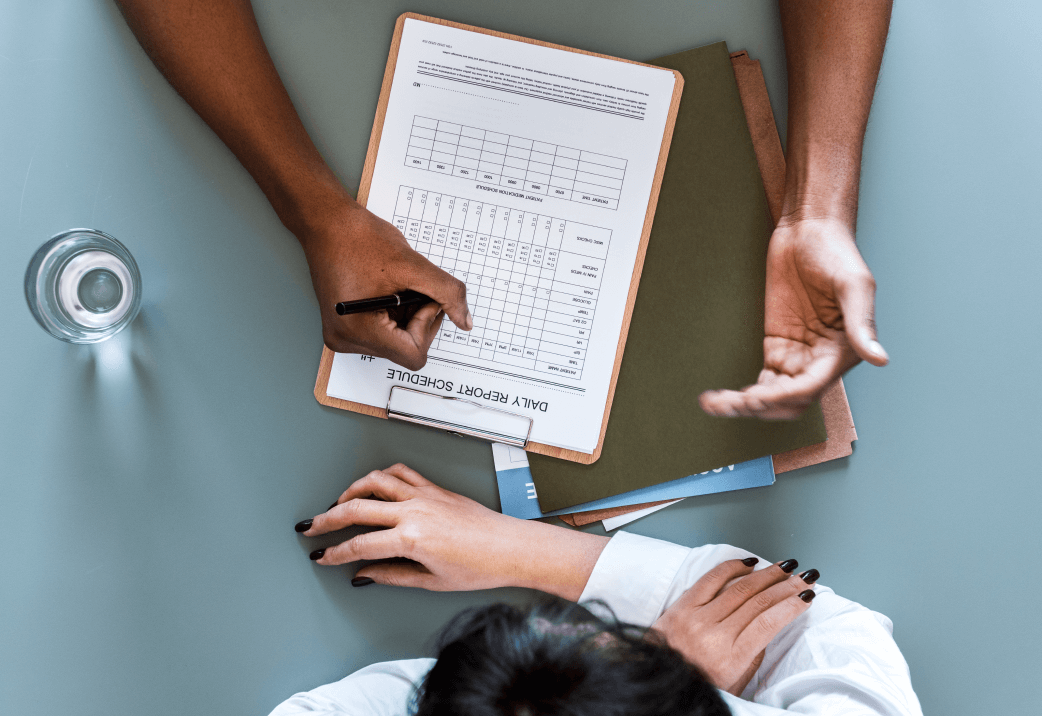Services


For swift conduct of the study, we train the research staff on the protocol procedures and applicable regulations to avoid unwanted pitfalls. Also, we provide additional information during the training about the documentation of research, subject response to treatment, clinical expertise for protocol adherence and accurate data collection.

Site SOP preparation in clinical trials involves creating a set of standard operating procedures (SOPs) that outline the specific processes, guidelines, and responsibilities for conducting clinical trials at a particular site or research facility. We guide you create these SOPs to ensure consistency, compliance with regulatory requirements, and the protection of participant rights and safety.

As researchers and sponsors embark on the journey of developing new treatments, therapies, and medical interventions, selecting the right sites to conduct clinical trials is of utmost importance. The process of site identification and feasibility evaluation plays a pivotal role in determining the success and efficiency of a clinical trial.

With the help of NIOS you will be able to discover effective strategies for collaboration and communication between sponsors, investigators, and site personnel during pre-site qualification and site selection visits. Our focus stays on the importance of building strong relationships, fostering open dialogue, and maintaining clear and transparent communication channels throughout the journey.

We aim to guide researchers, sponsors, and investigators through the intricate process of IRB/IEC submission in clinical trials. We provide valuable insights, practical advice, and resources to help you navigate this critical stage with confidence. Gain a comprehensive understanding of the role and significance of IRBs/IECs in clinical trials with us.

We stress the significance of fair and equitable contracts that safeguard the interests of all parties while abiding by legal and moral requirements. We seek to enable effective contract and budget management by providing helpful insights, best practices, adaptable templates and encouraging cooperation and trust among stakeholders. With the help of our resources, you’ll be able to simplify your budgeting and contracting processes, which will eventually help to advance medical research and enhance patient care.

We provide a variety of resources, such as instructions for creating recruitment programmes, successful marketing methods, and advice for interacting with various groups. Throughout the recruitment process, we place a strong emphasis on the value of moral behaviour and freely given permission in order to preserve participant rights and safety. We hope to improve subject recruitment, speed up research timelines, and help to the development of ground-breaking medical interventions with our recommendations based on solid data and useful advice.

NIOS is dedicated to sharing the best methods for better communication and shared decision-making with researchers, medical professionals, and study coordinators. We advise creating concise and clear consent forms, methods for improving participant comprehension, and pointers for creating a welcoming environment. We place a high value on conducting research in an ethical manner and support the adoption of creative strategies to enhance the informed consent procedure. We want to empower individuals as well as researchers by using our resources and insights.

To assist researchers, sponsors, and study coordinators in overcoming recruitment difficulties and shortening trial timeframes, we provide evidence-based ideas, creative strategies, and useful tools. To maximise recruitment potential, we offer advice on identifying target audiences, utilising digital marketing tools, utilising patient registries, and interacting with healthcare professionals. We place a strong emphasis on the value of moral hiring procedures and ongoing safeguarding of participant rights. You can increase trial diversity, increase participant enrolment, and contribute to ground-breaking medical discoveries by using our tried-and-true methods.

Our knowledgeable team is dedicated to offering helpful information and best practises to study coordinators, sponsors, and researchers so they can build reliable AE/SAE reporting, documentation, and management systems. We place a strong emphasis on the execution of exacting safety monitoring methods, proactive risk assessment, and prompt coordination with regulatory authorities. You may handle AE/SAE management with confidence, maintaining participant well-being while complying to ethical norms, by drawing on our knowledge and using our tools. We can progress medical research and the creation of secure and efficient treatments by working together.

The development of user-friendly CRFs, the implementation of safe and effective EDC systems, and assuring data quality and integrity are all areas in which our team of experts shines. We offer advice on CRF design, data quality assurance, and query resolving. We also offer details on user training, data encryption, and selecting and implementing EDC systems. You may increase data accuracy, speed data collection, and boost trial efficiency by implementing best practises in CRF and EDC management. By utilising the potential of trustworthy and thorough clinical trial data, we can jointly improve medical research.

An investigational product’s (IP) management is an intricate and strictly regulated process. The intellectual property (IP) may be a medicine, biologic, medical device, or combination product, each subject to different regulatory and accountability requirements. Accountability for the IP includes, but is not limited to, recording the circumstances surrounding the test article’s shipment, storage, administration, return, and/or destruction, as well as any unique labelling or quality control procedures that might be necessary. In addition to any protocol-related requirements for the IP’s safe and proper operation, such as randomization and un-blinding procedures, our staff will instruct you on how to administer the IP properly.

We provide advice on creating monitoring plans, performing site inspections, and putting quality control procedures into action. On our website, you may find details about how to prepare for an audit, what paperwork is necessary, and the best ways to deal with the results and take corrective action. Throughout the study process, we stress the significance of adhering to Good Clinical Practise (GCP) principles and ethical standards. You may assure the authenticity and dependability of your study data and promote regulatory compliance by implementing our suggested monitoring and audit procedures.

Our team of specialists is invested in bringing the medical community useful data resources to improve their QA/QC systems. We provide advice on how to conduct internal audits, deal with deviations, put corrective and preventative measures (CAPAs) into place, and make sure that regulatory obligations and Good Clinical Practise (GCP) standards are being followed. You may strengthen the validity of your clinical trials and raise the standard of your data by using efficient QA/QC processes.

We emphasize the establishment of open lines of communication, regular meetings, and clear documentation of responsibilities and expectations. We also provide tips for addressing challenges, resolving conflicts, and maximizing the value of the CRO relationship. By prioritizing effective communication, you can optimize trial timelines, streamline operations, and achieve your research goals efficiently.

We provide advice on marketing tactics, business contacts, and establishing connections with sponsors and CROs. We offer guidance on boosting site functionality, maximising patient acquisition, and maintaining legal compliance. You may improve the standing of your research site, increase the number of studies you are able to conduct there, and promote medical research by utilising our experience and putting into practise tried and true business growth tactics.

We develop several methodical procedures and documentation processes to complete the study, wind up, and move into the data analysis and reporting phase. To complete a trial successfully, careful attention must be paid to a few elements, including data collection, site visits, last participant visits, investigational product returns, settlement of open questions, and regulatory compliance.

To ensure effective document retrieval and tracking, a thorough index or inventory of all archived documents must be kept up to date. The support of data integrity and reproducibility of clinical trial results is greatly aided by archived documentation. They serve as a valuable resource for researchers, regulatory authorities, and sponsors, allowing them to review and validate the study’s findings, methodologies, and compliance with ethical standards. Accountability, transparency, and the advancement of medical research are all supported by effective document archiving.

Our CME content covers a wide range of topics, including scientific writing best practices, manuscript preparation, data presentation, literature review techniques, and adherence to reporting guidelines. These resources provide valuable insights into the nuances of medical writing, ensuring writers stay abreast of evolving standards and improve the quality and impact of their work. Through our CME content and training modules, medical writers can strengthen their expertise, enhance professional growth, and contribute to the dissemination of high-quality medical research.

Materials for patient education are essential for encouraging patient comprehension, involvement, and decision-making. We place a strong emphasis on using clear language, succinct justifications, and visual aids to help patients understand complicated medical ideas. Our resources address a wide range of subjects, such as disease awareness, therapeutic alternatives, dosage guidelines, lifestyle changes, and clinical trial participation. Medical writers can create educational materials that enable patients to take an active role in their healthcare by using evidence-based information and patient-centered methodologies.

Our group aims to providing standardised solutions that are grounded in fact, trustworthy, and current. We offer a database of frequently asked questions about medicine along with thorough, referenced answers. These standard responses address a wide range of subjects, including information on diseases, available treatments, pharmaceutical safety, and involvement in clinical trials. We cordially invite you to investigate our standardised responses, broaden your expertise, and competently respond to medical inquiries in your written medical content.

We place a strong emphasis on using simple, succinct language while making sure to provide pertinent information supported by research and clinical knowledge. Our materials address a wide range of subjects, such as questions about particular diseases, available treatments, unfavourable outcomes, clinical trial questions, and regulatory compliance. Medical writers can create reliable communication channels, earn readers’ trust, and deliver pertinent information to a range of audiences by using personalised response letters.

For medical writers working on drug guidelines and surveys, our staff is committed to providing support and tools. Medical writers can help patients and care givers make educated decisions about their treatment by developing educational and user-friendly drug guides and questionnaires. These resources aid in patient safety, better adherence, and drug knowledge.

In order to help medical writers create patient information leaflets that effectively convey crucial medical information, our staff is dedicated to providing advice and best practises. To improve comprehension and engagement, we place a strong emphasis on using clear language, succinct justifications, and visual aids. Our resources provide information on a wide range of subjects, including disease details, therapeutic alternatives, dosage directions, lifestyle suggestions, and self-care advice. Our goal is to support patient participation, disseminate useful information, and boost people’s general wellbeing.



Contact us for perfect execution of the next trial and experience the difference expertise makes.
Let's talk